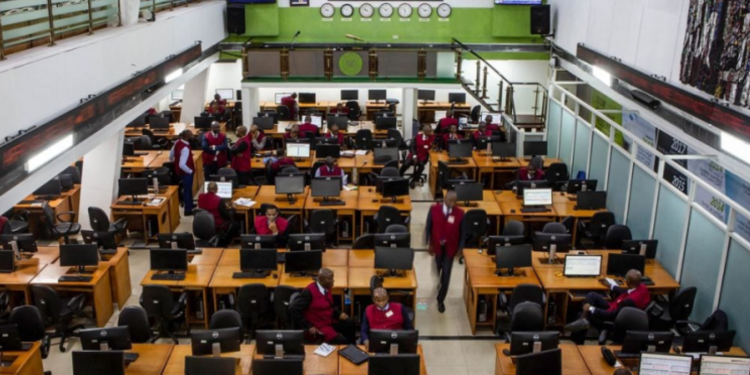In October, the Nigerian Exchange Limited (NGX) experienced a bearish trend, with the All-Share Index (ASI) declining by 0.92% to finish the month at 97,651.23 basis points. This downturn occurred despite new listings that increased the market’s overall value by N2.53 trillion.
The ASI opened the month at 98,558.79 basis points but ultimately shed 907.56 basis points. Market capitalization rose to N59.171 trillion, up from N56.635 trillion at the beginning of the month.
The drop in equities was primarily due to sell-offs in industrial and consumer goods stocks, despite gains in oil and gas, banking, and insurance sectors. Sectoral performance was mixed; the NGX Industrial Goods Index, which fell by 9.31%, had the most significant negative impact on the market. It opened the month at 3,807.26 basis points and closed at 3,451.92 basis points, with BUA Cement leading the decline by dropping 11.09% to N97.80 per share from N110.
Despite the overall decline, market breadth remained positive, with 54 advancers compared to 44 decliners during the month. Out of 22 trading sessions, the market recorded losses in 12 and gains in 10, reducing the year-to-date gain to 30.60%.
Ambrose Omordion, Chief Research Officer at Investdata Consulting Ltd, highlighted the disconnect between the mixed performance of the ASI and positive corporate earnings reported by listed companies. He attributed this disconnection to the Central Bank of Nigeria’s monetary policy and the government’s inconsistent economic reforms amidst high interest rates and insecurity.
Omordion stated, “This is a reflection of the monetary policy stance of the CBN and mismatched economic reforms policies of the government. For these high rates are threatening the nation’s economic expansion, it is time for the government to revisit its various policies needed to boost the economy, while ensuring coordination with the monetary authorities.”
He also pointed out that the increased electricity tariffs and fuel prices have further pressured the cost of goods and services, impacting the manufacturing sector and contributing to the mixed earnings reports from real sector companies.










